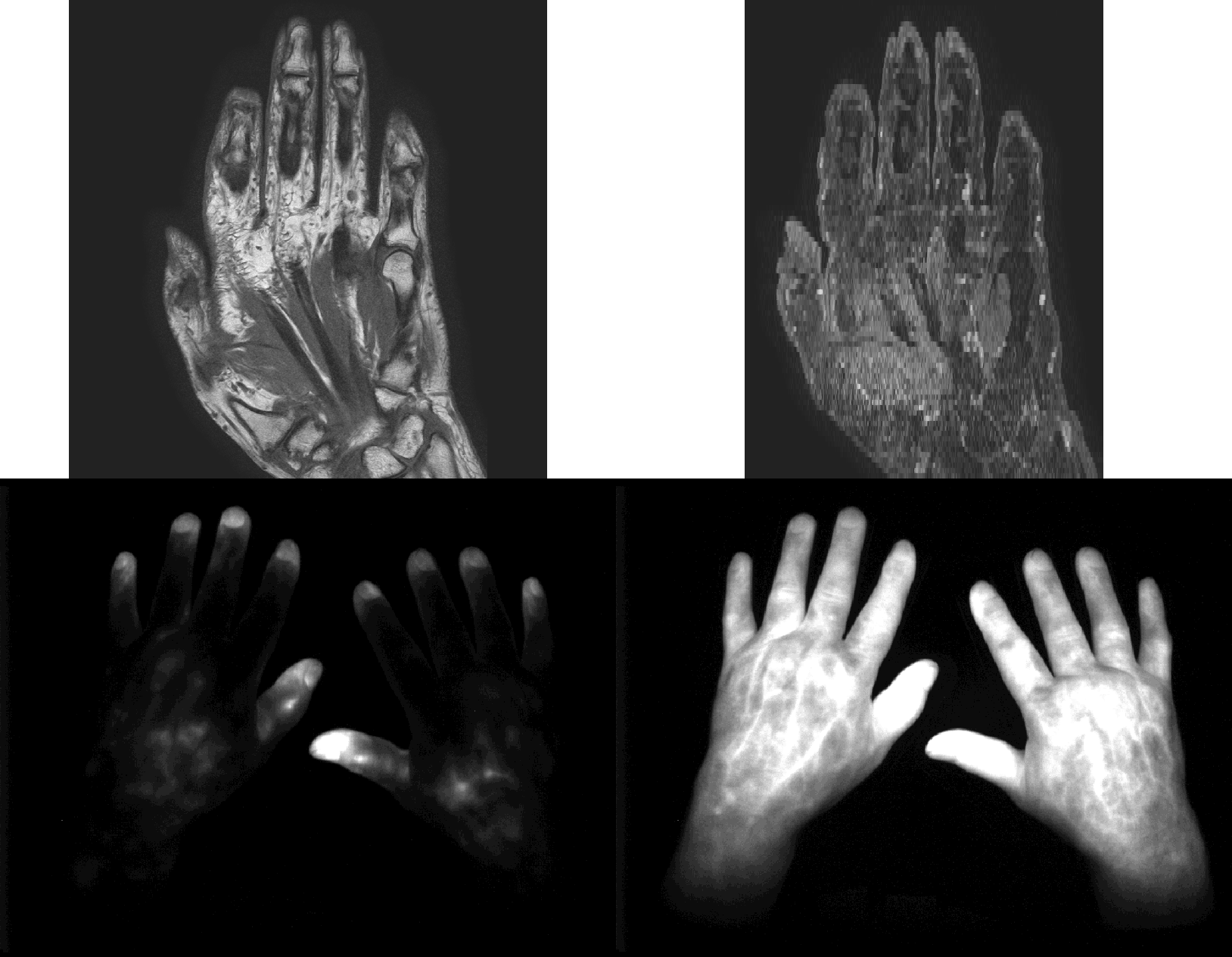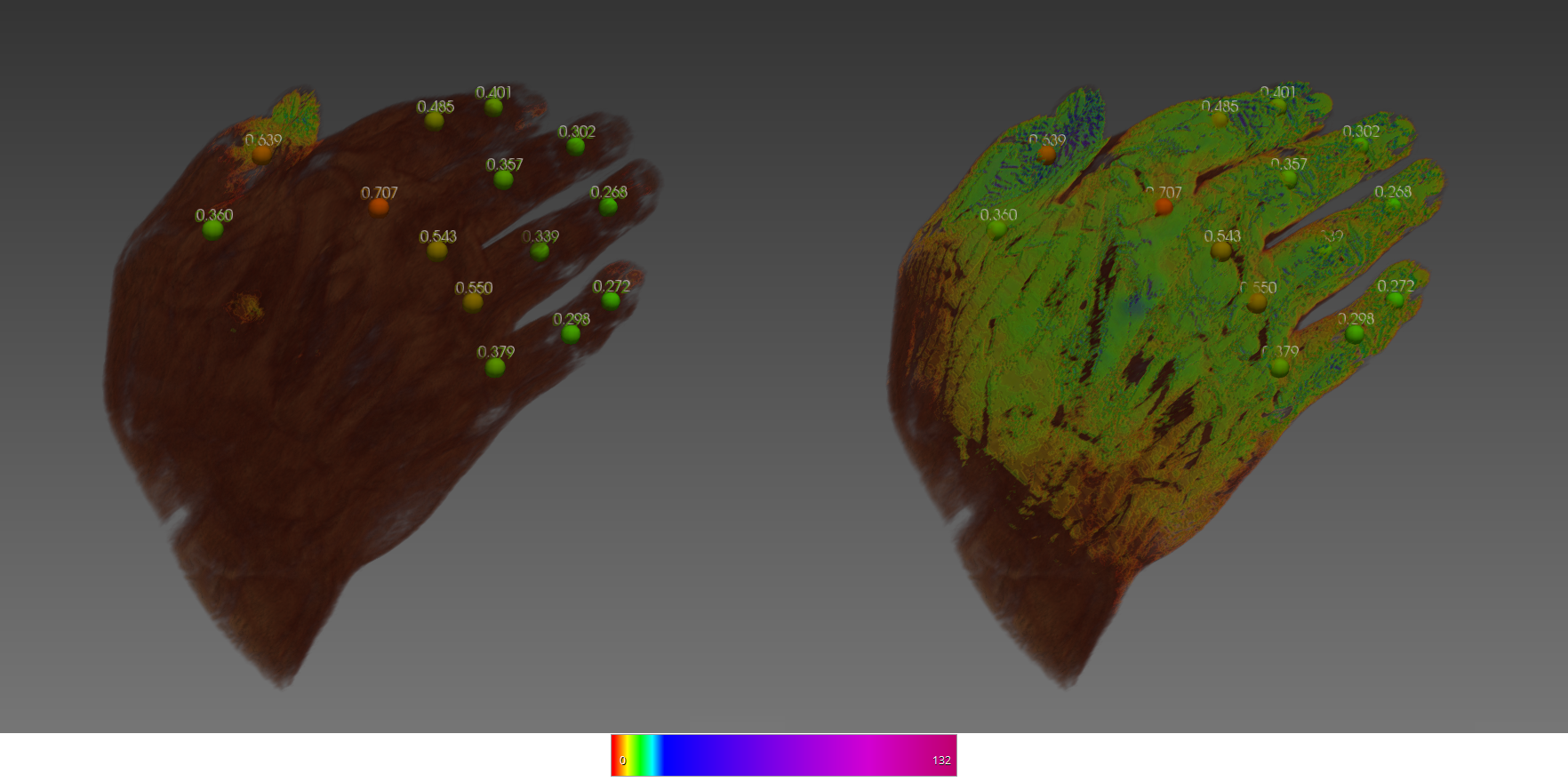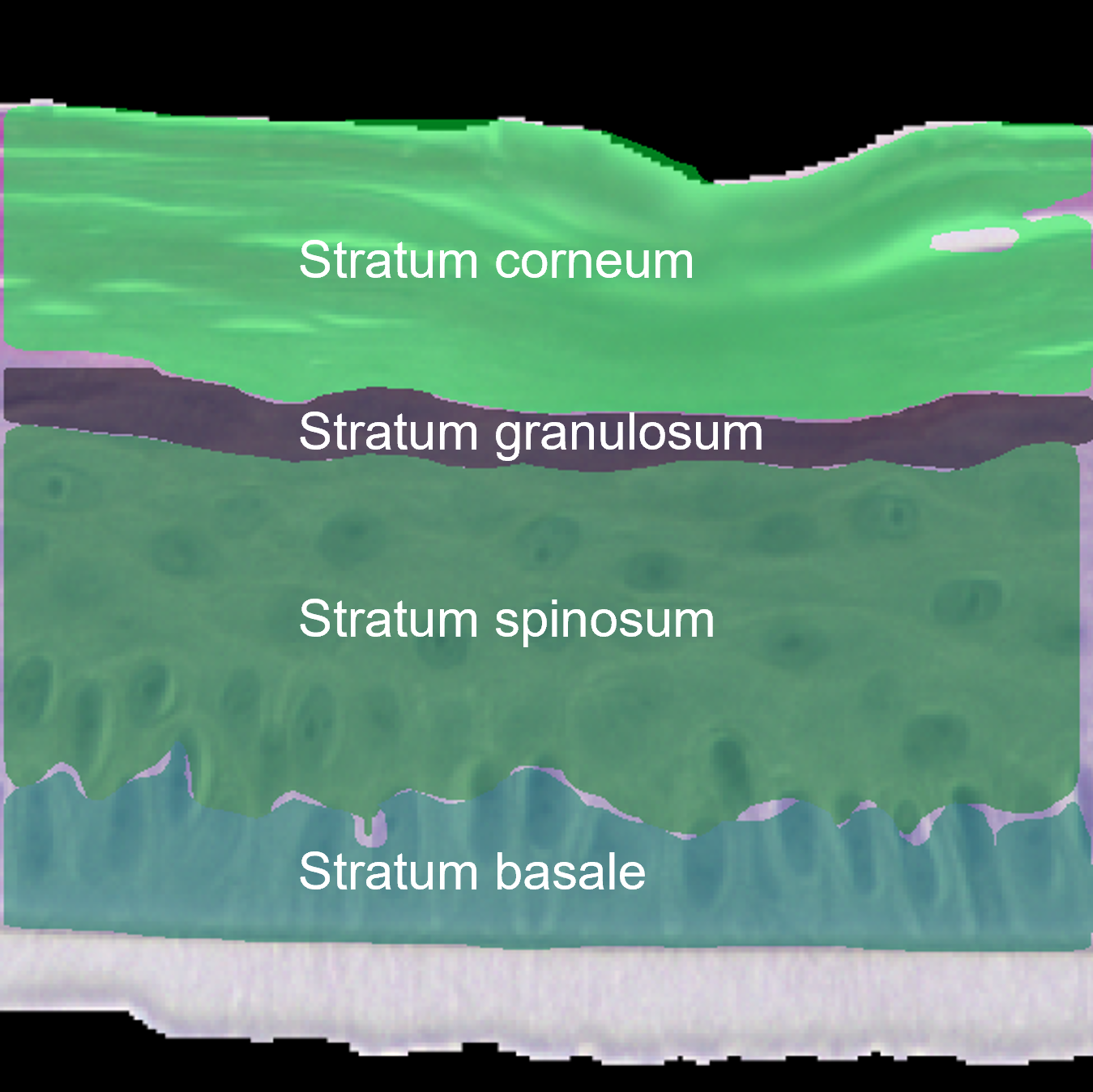Psoriatic arthritis


Psoriatic arthritis (PsA) is a chronic inflammatory disease of the musculoskeletal system. Psoriatic arthritis is not curable. Currently, the progression of the disease can only be slowed down through therapy. Early diagnosis is therefore very important to minimize the symptoms for the patients. In addition, other arthritic diseases have similar symptoms but differ in treatment.
To support doctors in early detection, we are conducting research as part of the Fraunhofer "Cluster of Excellence Immune Mediated Diseases" to develop diagnostic solutions based on common imaging techniques. This includes the automated evaluation of X-ray images, ultrasound data, MRI, and fluorescence optical imaging. In the latter imaging technique, patients are injected with a so-called ICG dye, the distribution of which is then recorded in an image series. The distribution of the ICG is correlated with the activity of the metabolism in different areas. This allows conclusions to be drawn about potentially inflamed areas. These automated evaluations include, among other things, segmentations of individual bones in diagnosis-relevant regions, scoring of these regions, and diagnosis of existing symptoms. Since these evaluations are performed on different image modalities, we also deal with the non-rigid registration of the modalities. This enables a combined visualization of the results.
In addition, within the framework of the EU Innovative Medicines Initiative-funded project HIPPOCRATES, we collaborate with leading experts in Europe to improve the diagnosis, therapy of PsA, and the differentiation of other inflammatory diseases of the musculoskeletal tissue. This includes specialized imaging techniques such as High-Resolution Peripheral Quantitative Computed Tomography (HR-pQCT), in addition to the solutions mentioned above. Therapy successes should be made verifiable by recording and analyzing longitudinal data. In addition to the evaluation of image-based data, HIPPOCRATES also explores different cell parameters, so-called OMICS (proteomics, lipidomics, metabolomics, etc.), to generate an ideal rule set that correlates well with the progression of the disease.
 Fraunhofer Institute for Computer Graphics Research IGD
Fraunhofer Institute for Computer Graphics Research IGD